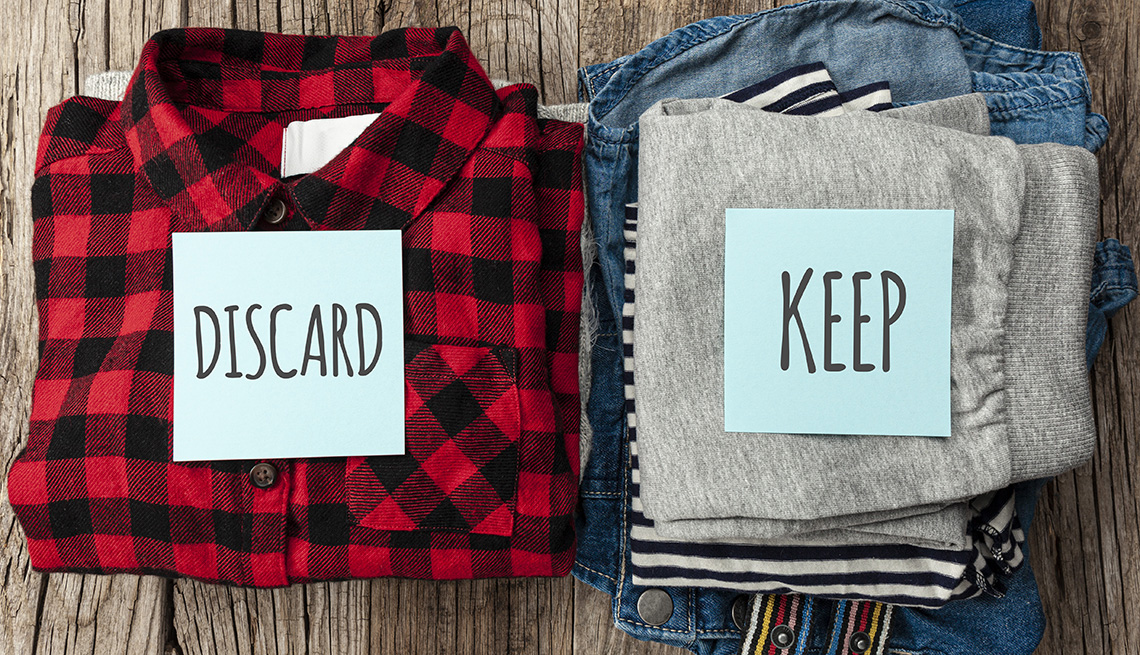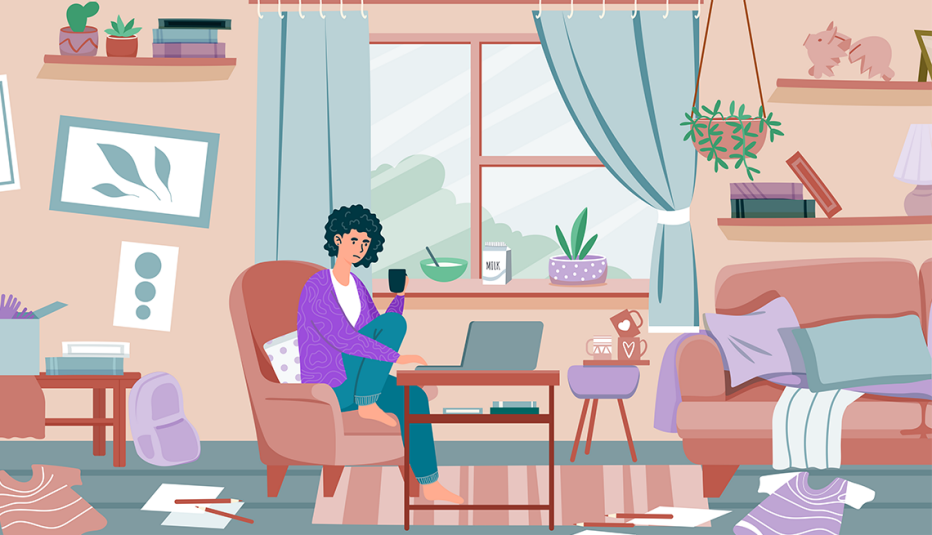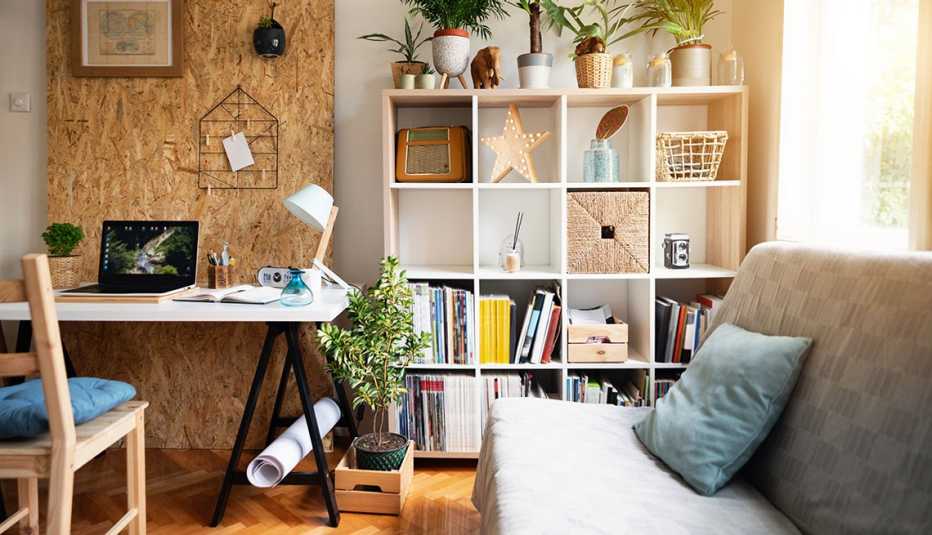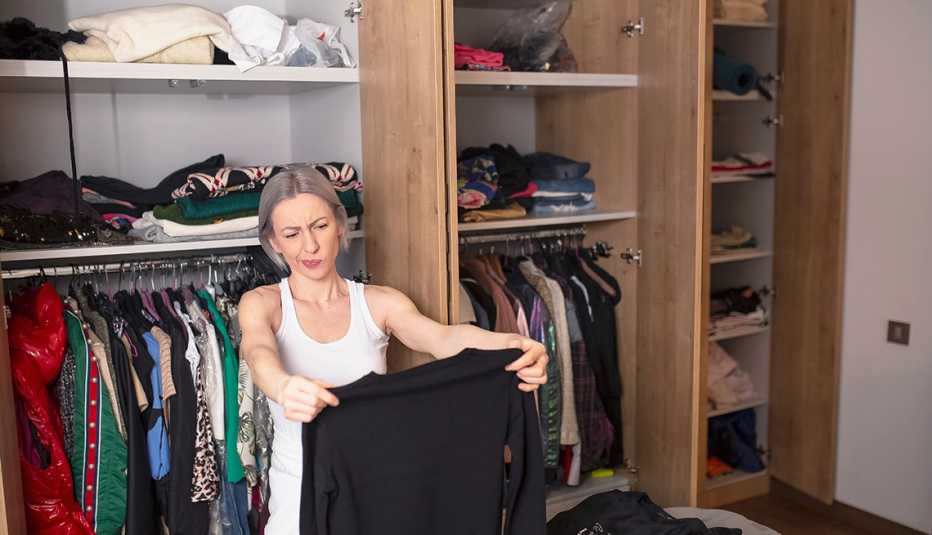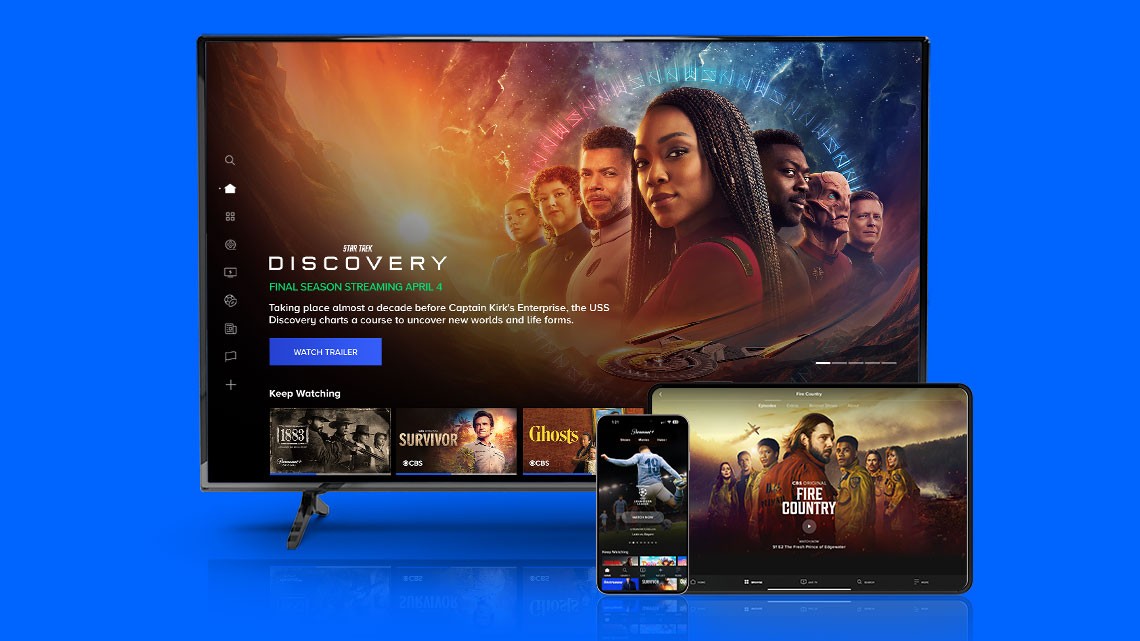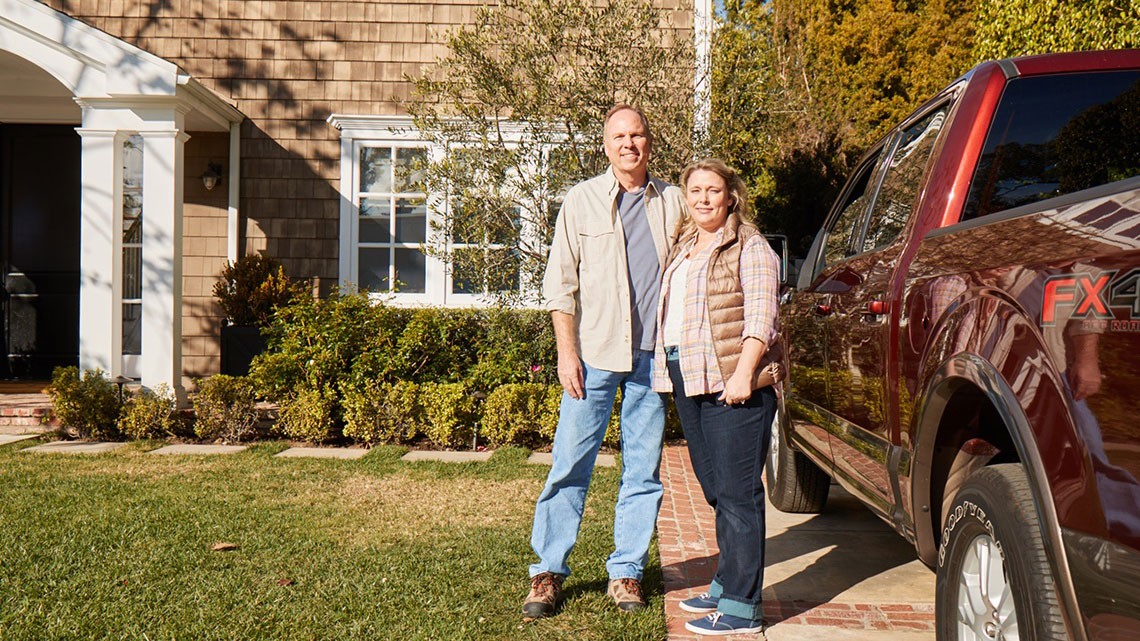Staying Fit
Kim Livengood is a self-proclaimed pack rat.
“I have kept all my Seventeen and Vogue magazines since I was 14,” she admits. “I have trouble getting rid of sentimental items — and clothes.”


AARP Membership— $12 for your first year when you sign up for Automatic Renewal
Get instant access to members-only products and hundreds of discounts, a free second membership, and a subscription to AARP the Magazine.
But when she and her husband sold their 3,500-square-foot house and moved into a 900-square-foot condo, they embarked on a path of downsizing. The move, Livengood says, made her learn to embrace a clutter-free lifestyle.

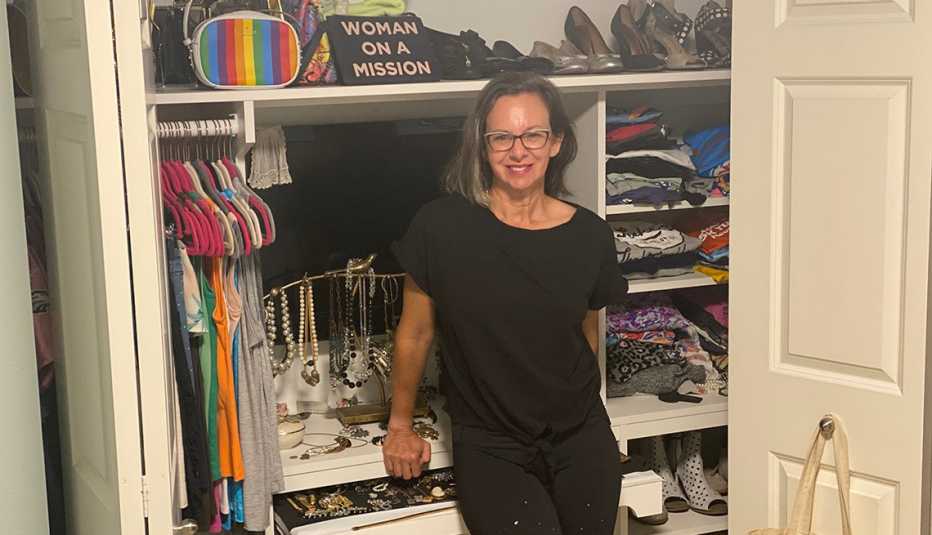
To start the tossing, the 53-year-old public relations professional in Sarasota, Florida, began with those old magazines and then challenged herself to keep only enough clothes to fit inside her closet. She tackled kitchen accessories and towels and was on a roll from there.
“Once I started giving things away and recycling, I started to feel lighter,” Livengood says. And if she was able to cut down on the amount of stuff she owns, “anyone can!”
Minimalism on the rise
Livengood is not alone. In recent years, there has been a push toward minimalism, especially during the pandemic.
People were at home more and were “face to face with all that stuff,” says Ryan Nicodemus, one half of the Minimalists, a pair on a mission to help others trim down their possessions, and the coauthor of Love People, Use Things: Because the Opposite Never Works. “They’re starting to question what actually does add value to their lives.”
His coauthor, Joshua Fields Millburn, is quick to point out that minimalism isn’t living in a stark white house with empty walls and no furniture; it’s about keeping what enhances your life and getting rid of what doesn’t.
“If you come to my house, you wouldn’t say, ‘Oh my God, this guy’s a minimalist.’ You’d say, ‘Wow, did he just clean up?’ ” says Fields Millburn.
That’s because he doesn’t have a lot of excess “stuff” and instead strives to own only things that serve a purpose or bring joy.
The duo of Fields Millburn and Nicodemus is quick to point out that the average American home contains a whopping 300,000 items. Minimalism, Nicodemus says, is what helps people sift through all of that.
Clutter has been linked to stress and anxiety and can even lead to overeating junk food and procrastinating. And Fields Millburn adds that it can have a negative impact on many areas of life.
Clutter, according to the Minimalists, does more than take up space. Purchasing an item costs money, which can lead to financial stress and the need to work harder to acquire more. Items require storage and space, which can lead to mental and psychological stress. And while people’s first instinct is to tame clutter by purchasing products to help organize it, the Minimalists say this is not the answer.
“Organizing is just well-planned hoarding,” Fields Millburn says. Thus, the best way to “organize your stuff,” per the experts, is to keep the things that add value to your life and get rid of any items that don’t.
Ready to start eliminating things in order to make room for what matters the most? This expert guide will tell you exactly what to toss.



























































